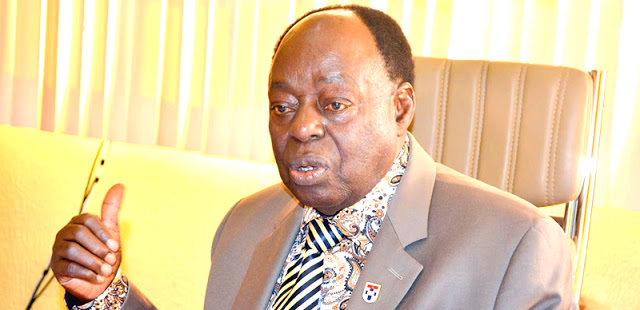
Senior Advocate and founder of Afe Babalola University, Aare Afe Babalola, has made case for urgent far-reaching reforms in the country’s judicial system particularly in the area bothering on the retirement of judges and aftermath.
Babalola also reiterated the need to change the structure of the country, saying, “It is restructuring that would enable each state to curb insecurity, unemployment, poverty, defective justice system and do away with failed leaders.
The ABUAD founder, who spoke during the virtual book launch in honour of retired Supreme Court justice, Justice Bode Rhodes-Vivour, which he chaired, said, “The only change that can change the country for the better and pave way for the enhancement of one Nigeria is the change that changes the structure of Nigeria.
“It is that change that will make politics less attractive, make each state develop at its own pace and do away with all shades and shapes of criminality. It is restructuring that would enable the component parts of the country to develop their resources, provide employment, eradicate poverty and make individuals become true Nigerians,” he said.
Babalola said Rhodes-Vivour, who he described as a “judge with unquestionable integrity, character, industry and dignity,” retired at the age of 70 years “when he had not shown any sign of physical weakness and when Nigeria would have benefitted more from his wealth of wisdom, insight and experience.”
The ABUAD founder said, “I want to seize this opportunity to plead that we should review our justice system particularly the age of retirement of Supreme Court Judges. Experience has shown that a person becomes wiser and more experienced as he advances in age.
“A brief look at other countries shows that appointment to the Supreme Court is a lifetime appointment. There is no age limit for a justice of the Supreme Court to retire. Often times, they stay as long as they probably can. In fact, many die while in office. But those who opt for retirement, the average age is 78.7 years. The average retirement age has grown a whopping 103 years.”
Babalola also advocated that retiring judges should be allowed to practise law, saying, “There is an urgent need for reform of our judicial system. Even if judges are not allowed to return to full practice, there should be a measure of participation in law practice that will ensure their relevance in the nation’s development of law.
“I suggest that Nigeria should adopt the quasi-restrictive style in the operation in the United States whereby a sitting judge may recuse himself in the case of conflict of interest or allow retiring judges to prepare and draft pleadings, motions and appellate briefs,” he said.
The senior advocate also said, “The position of the CJN is so important that it should not be based on promotion but strictly on merit.
“I know from experience that the best judges are those who have been in active litigation, who have interacted with clients, who have drafted claims and pleadings and who have addressed legal issues at different level of the courts,” Babalola said.
In this article:
